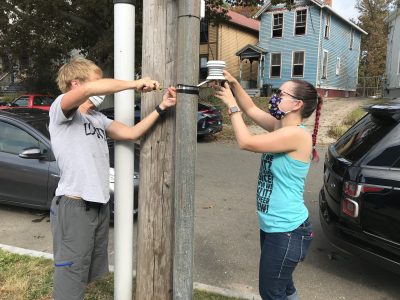CIRCA is a multi‐disciplinary research institute that brings together affiliated faculty in the natural sciences, engineering, economics, political science, finance, and law to provide practical solutions to problems arising as a result of climate change. CIRCA supports and collaborates with interdisciplinary faculty and their research teams through a variety of ways including:
- Funding resilience research and projects through our municipal, matching, and research grant programs.
- Working on capacity building studies through the Resilient Connecticut project.
- Partnering to create technical products including map viewers, scientific publications, and associated datasets.
- Doing field research on flooding and heat
- Developing policy and legal tools to help municipalities.
In 2020 for example, the Resilient Connecticut capacity building studies supported 6 research faculty, 5 Postdocs, 6 graduate students, and 3 undergraduates.
Additional undergraduate students are supported through annual internships that involve them in research to help build skills and career development. For example, CIRCA’s Resilience Roundup monthly newsletter would not be possible without the time and dedication of an undergrad intern. These interns are also actively involved in supporting faculty research as well as workshops and other events that CIRCA hosts on campus.
CIRCA also submits grant applications for state and federal funding by collaborating with faculty in multiple departments at the University of Connecticut and in partnership with faculty at other academic institutions. In 2020-2021 CIRCA submitted 22 grant proposals, which would not have been possible without the support of partnering faculty.

